Poundstone - Fortunes formula: the untold story of the scientific betting system that beat the casinos and Wall Street
Here you can read online Poundstone - Fortunes formula: the untold story of the scientific betting system that beat the casinos and Wall Street full text of the book (entire story) in english for free. Download pdf and epub, get meaning, cover and reviews about this ebook. City: New York;NY, year: 2005, publisher: Farrar, Straus and Giroux;Hill & Wang, genre: Detective and thriller. Description of the work, (preface) as well as reviews are available. Best literature library LitArk.com created for fans of good reading and offers a wide selection of genres:
Romance novel
Science fiction
Adventure
Detective
Science
History
Home and family
Prose
Art
Politics
Computer
Non-fiction
Religion
Business
Children
Humor
Choose a favorite category and find really read worthwhile books. Enjoy immersion in the world of imagination, feel the emotions of the characters or learn something new for yourself, make an fascinating discovery.
- Book:Fortunes formula: the untold story of the scientific betting system that beat the casinos and Wall Street
- Author:
- Publisher:Farrar, Straus and Giroux;Hill & Wang
- Genre:
- Year:2005
- City:New York;NY
- Rating:4 / 5
- Favourites:Add to favourites
- Your mark:
Fortunes formula: the untold story of the scientific betting system that beat the casinos and Wall Street: summary, description and annotation
We offer to read an annotation, description, summary or preface (depends on what the author of the book "Fortunes formula: the untold story of the scientific betting system that beat the casinos and Wall Street" wrote himself). If you haven't found the necessary information about the book — write in the comments, we will try to find it.
In 1956, two Bell Labs scientists discovered the scientific formula for getting rich. One was mathematician Claude Shannon, neurotic father of our digital age, whose genius is ranked with Einsteins. The other was John L. Kelly Jr., a Texas-born, gun-toting physicist. Together they applied the science of information theorythe basis of computers and the Internetto the problem of making as much money as possible, as fast as possible.
Shannon and MIT mathematician Edward O. Thorp took the Kelly formula to Las Vegas. It worked. They realized that there was even more money to be made in the stock market. Thorp used the Kelly system with his phenomenally successful hedge fund, Princeton-Newport Partners. Shannon became a successful investor, too, topping even Warren Buffetts rate of return. Fortunes Formula traces how the Kelly formula sparked controversy even as it made fortunes at racetracks, casinos, and trading desks. It reveals the dark side of...
Poundstone: author's other books
Who wrote Fortunes formula: the untold story of the scientific betting system that beat the casinos and Wall Street? Find out the surname, the name of the author of the book and a list of all author's works by series.

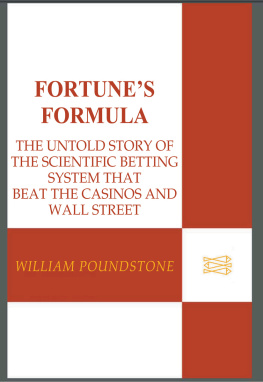
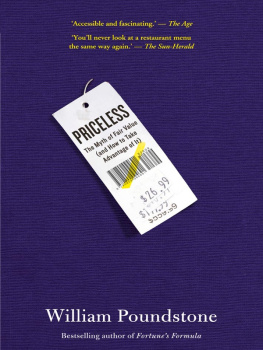

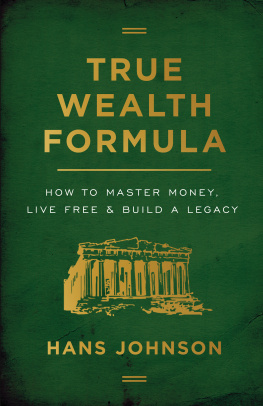
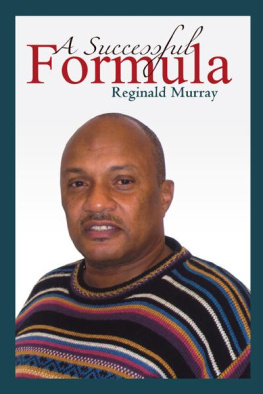
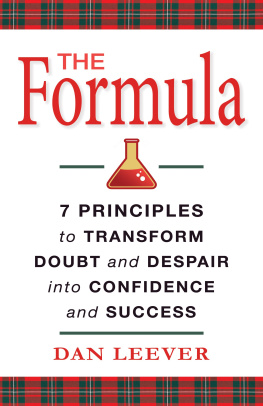


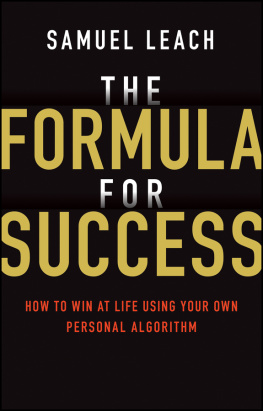

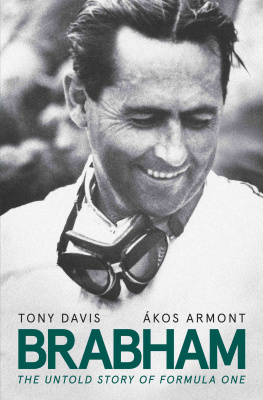
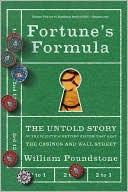



 Hill and Wang
Hill and Wang